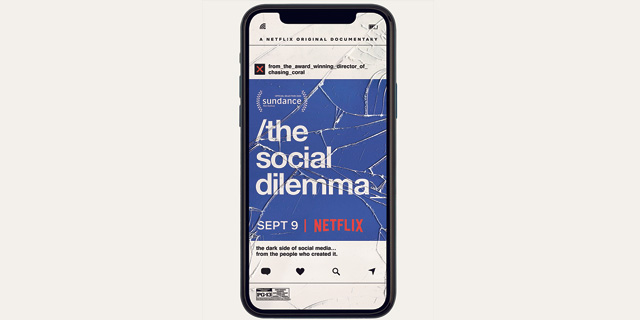Unless you’ve lived under a rock for the past weeks, you’ve probably heard of Netflix’s ‘The Social Dilemma,’ which made a serious splash worldwide. The movie, which includes interviews with executives from tech giants and discusses the danger of social media and data tracking, is the first documentary to make the list of most popular movies on Netflix. It has caused a Twitter storm and even got Facebook to release an official statement addressing some of the issues it touches.
As someone who deals with online privacy challenges all day, every day, I was eager to watch it to find out if it provides any new information for a privacy-obsessed individual like myself. I was also curious to see how the movie explains this complex topic. While the creators did an excellent job discussing some severe concerns regarding the use of our data, here are three things they didn’t tell you.
#1 Oh, the irony
It’s not the first time Netflix features a documentary about data privacy, the previous hit being ‘The Great Hack’ - both movies make me wonder if whether Netflix is unaware of the role it plays in the user data game - the streaming giant uses our data and tracks our viewing habits to draw us to watch more content. The company is even said to be tracking our physical activity. Most of the issues discussed in ‘The Social Dilemma’ are true to Netflix almost as much as they are relevant to Facebook or YouTube. When watching interviews with team members from Instagram’s early days who shared the thought process behind data collection schemes, I couldn’t help but wonder if an interview with a Netflix previous employee would have sounded any different.
You might say that companies like Google make a living by selling their ad space and targeting specific users based on their data, whereas Netflix’s business model doesn’t include ads. But while that is true, it is still a commercial platform that generates a pretty penny from our data. According to Greg Isaacs, CMO &CPO at BEN, 74% of Netflix’s content features at least one product placement. Also, just because Netflix doesn’t include ads today, doesn’t mean its business plan won’t be different tomorrow. Remember when WhatsApp was promised to be ad-free but later sold to Facebook, which decided to bring on the ads only to eventually back out? Business plans change, but data-collecting mechanisms and smart algorithms remain. Netflix is a stone-throwing company living in a glass house.
#2: Meet your interviewees
One of the main narratives the interviews promote is that we are being fed specific content to alter our thoughts and behavior. The thing is, this is a movie that is trying to precisely do that, and some of its biggest stars would currently benefit from such a change.
Tristan Harris, previously a design ethicist at Google, is now the president and a co-founder of the Center for Humane Technology, a nonprofit focused on ethical technology. Another interviewee is former Pinterest President Tim Kendall, who is currently Moment’s CEO, a company dedicated to monitoring and improving users’ screen-time and online behavior. The movie offers partial disclosure regarding the participants’ agenda, and it is more than plausible that these executives took part in this movie and these companies because they care. I mean, my business goals and personal beliefs have both led me to write these very lines. Still, I couldn’t help but think that at least some of them made money and built impressive careers thanks to big tech companies, only to blame everything on ‘the machine’ after getting their share.
#3: Scared yet?
Documentaries are a form of entertainment, and this one offers many overly dramatic moments that almost ridicule its important message. We’re told that social media and search engines track our online activity and use this information to mess with our minds. We are being intimidated, but no solution is offered at any point.
Assuming we don’t mean to live off the grid, as social networks also offer value, like staying in touch with people during Covid-19, scaring people into thinking that technology is the root of all evil isn’t exactly productive. The movie hypothesizes that tech companies themselves will decide to change their ways, or regulation will force them to. The thing the film doesn’t suggest is to provide a practical solution that gives users back control over their data. Considering the astonishingly high IQ levels in the room and the participants’ technological knowledge, I wonder why that is. How could the very people who built the tech tools that achieved the impossible ignore the option of building tools to give individuals data ownership?
To end things on a positive note, I believe that the movie does a phenomenal job raising awareness about this crucial topic. The great success it has achieved shows that the public debate that had started a few years ago is only growing stronger. It is now up to tech companies to take on this debate and apply it to the products. Much like the technologies the executives in the movie helped create, ‘The Social Dilemma’ is a case of good intentions that got a little off course and could use some fine-tuning.
Gal Ringel is the CEO & co-founder of Mine, a startup focused on data ownership solution.

